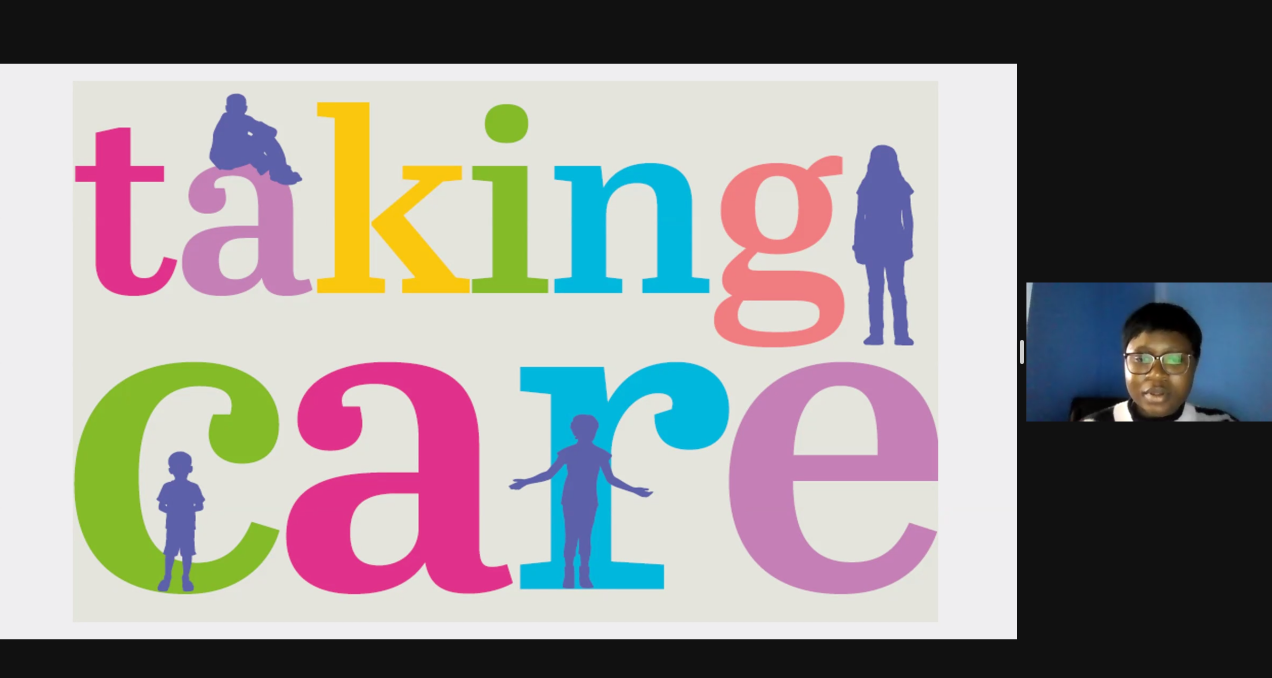written by Francess and Lisa
On Care Day – the 18th of February 2022 – we finally launched our report together with Coram Children’s Legal Centre: ‘Taking Care: How local authorities can best address immigration issues of children in care’. Last Friday, more than 80 people from local authorities, organisations, charities, and interests joined our webinar.
Background information about the report
In January 2021, the Department for Education launched its Independent Review of Children’s Social Care. The review set out to radically reform the care system to improve the lives of England’s most vulnerable children, so they experience the benefits of a stable, loving home. In this document, it was evident that children and young people in care with immigration issues were not focused on.
SLRA and Coram Children’s Legal Centre have partnered together in delivering a yearlong project that will ask local authorities in England to address the nationality and immigration status of children and young people in care in England. Read more about it in one of our previous blog entries.
With the help of Lambeth Citizens who delivered a six-week leadership training course to SLRA’s young people, we’ve been able to set up a youth participation group (Care for Young Migrants). During these six weeks we invited young people to talk about their experiences, gain new skills and learn about the importance of community organising. More in this blog entry.
Report launch
Despite Enuice – the storm over the UK – the report launch went smoothly and we are really grateful for all the support that we have received since then.
Marianne from Coram started our webinar by explaining the data that we have collected over the last year and showing the scale of the problem. At least 18,934 looked after children and care leavers do not have British citizenship. This poses a potential immigration or nationality issue that needs to be identified and resolved. It is a nationwide problem and has a huge impact on the lives of children and young people in care. However, Marianne made clear that there are hard-working social workers and some local authorities that already do a great job.

In the second part, Maya – our youth caseworker manager and policy adviser – stated that we do not want to focus on problems but want to concentrate on solutions. There are four key solutions:
(1) To identify all looked after children and care leavers with immigration and nationality issues
(2) To connect looked after children and care leavers with good quality legal support as soon as possible
(3) To take a proactive and informed role in supporting looked after children and care leavers through any immigration applications and appeals
(4) To enable those who are eligible to apply for permanent status and British citizenship
Read more about it in our report!

Further, the webinar continued with Aisha who shared her experiences in the care system. It was extremely powerful and brave of her to share her experiences and point out that being in the care system as a non-British child, already makes you feel more isolated and different, and to be clear: That change is needed now!
No one expects social workers to take all the burden alone, Aisha followed, but they should point children and young people in care to the right directions where they can get support and advice around immigration. Aisha’s motivation is to change the experience of future non-British children and young people in care in the UK to have a different experience in contrast to hers and many others. However, change will not come overnight but it is still important to start now.
Francess, our youth participation and policy officer, continued by introducing the essential work of the young people we worked with over the last couple of months. They produced a fantastic video in which they explained why this campaign is important for them and described feeling unsupported by social services. The regular meetings in the group, however, gave them the confidence to speak together about their similar experience and made them feel understood, supported, and less isolated.
Some of their suggestions for change are:
- Taking care of the mental health of the children that come to this country
- Making sure that young people understand the immigration process and are connected to good legal advice
- Suitable housing for young people
We are really grateful to have such an amazing, motivated, and engaging youth group!
The webinar ended with an interesting and thoughtful panel discussion with members from local authorities and NGOS who shared their experienced, perspective, and their work.


Panel 1 – Local authorities
Sarika Kohli – Solicitor, East Midlands Strategic Migration Partnership
Kate Williams – Team Manager, Manchester City
Gaby Couchman – Project Manager for UASC and Migrant Children, London Borough of Islington
Daniella Angelova – Team Manager, London Borough of Merton
Panel 2 – NGO’s
Amanda Shah – Greater Manchester Immigration Aid Unit (GMIAU)
Marieke Widmann, Policy & Practice Adviser, Refugee and Migrant Children, The Children’s Society (TCS)
Anna Skehan- ‘Legal Practice Lead – Migrant and Refugee Children’s Legal Unit (MiCLU)
Keith Clements – National Children’s Bureau (NCB)
If you want to support our campaign and make sure that young people and children’s voices are heard. Here are some actions that would be really helpful:
(1) Read our report
(2) share our report with friends, family, colleagues, and on social media : https://slraprd.wpengine.com/taking-care/
(3) Signing our immigration support pledge by getting in touch with Maya (maya@slr-a.org.uk)
Last but not least, we want to say a big thank you to the organisations that have already supported our pledge:


